SALIKSYNC: First National IMPACT Conference
The inaugural National IP Management Program for Academic Institutions Commercializing Technologies (IMPACT) Conference, organized by the Department of Science and Technology – Philippine Council for Industry, Energy, and Emerging Technology Research and Development (DOST-PCIEETRD) and branded as SALIKSYNC, gathered innovators, educators, researchers, and policymakers nationwide to advance knowledge and technology transfer efforts in the Philippines. Held on November 5-6, 2025, in Bacolod City, the conference centered on the theme “From IMPACT to NXT Horizons: Surging the Next Wave of Knowledge and Technology Transfer.” It highlighted the vital need to move research beyond academic publication toward creating meaningful, tangible benefits for communities, industries, and society at large.
Higher education institutions (HEIs) from the Cordillera Administrative Region (CAR) were actively represented at the event.
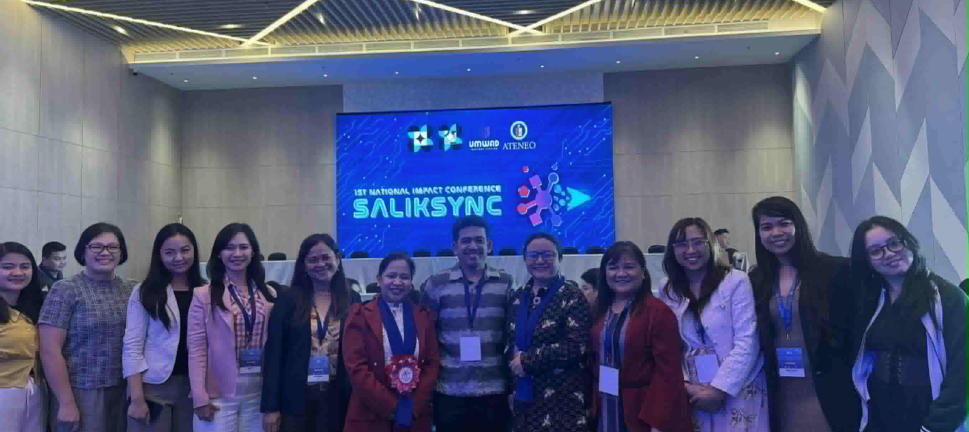
Saint Louis University (SLU), under the leadership of Rev. Fr. Gilbert B. Sales, CICM, PhD, where innovation is deeply embedded in its mission of transforming lives through education, research, and service, actively participated in the event. The University was represented by Felina P. Espique, PhD, Vice President for Academic Affairs; Richel L. Lamadrid, PhD, Research, Innovation and Sustainable Extension (RISE) Center Director; Laarni B. Natividad, PhD, Research Capacitation and Services Officer; and Prof. Maria Corazon Ocampo, SEA Faculty and Technology Business Incubator (TBI) Advocate. This representation reflects SLU’s strong commitment to fostering a culture of innovation, collaboration, and societal impact through research and technology transfer.
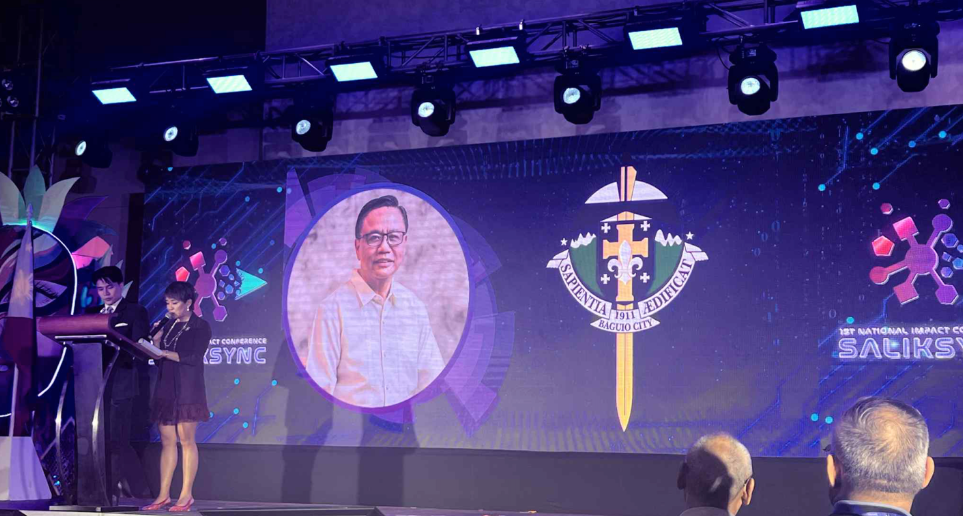
The First National IMPACT Conference began with the Entrance of Colors, Invocation, and a lively festival dance performed by the Masskara dancers from Brgy. Mansilingan, Bacolod City, followed by a welcome message from Hon. Greg G. Gasataya, Mayor of Bacolod City.

The opening message was delivered by Renato U. Solidum, Jr., PhD, Secretary of the Department of Science and Technology (DOST). He underscored the importance of transforming research from academic outputs into real-world solutions, asking, “What good is a breakthrough if it never breaks through?” Dr. Solidum also highlighted the IMPACT of DOST-PCIEERD, emphasizing that research is a public investment and must lead to public good.
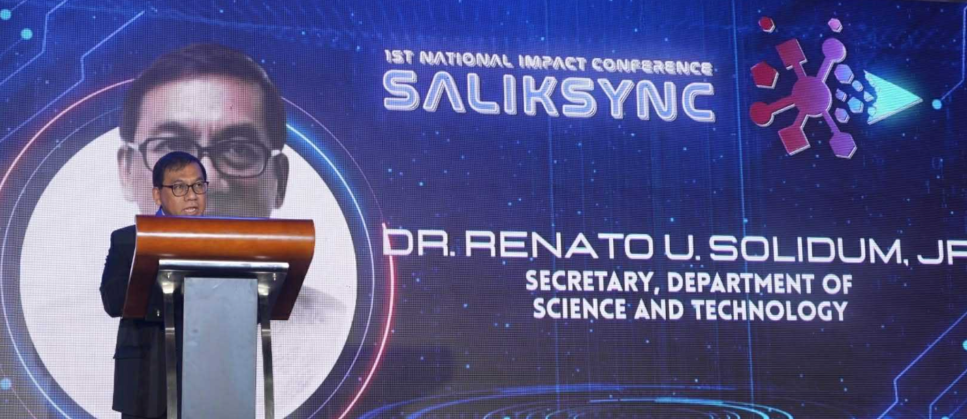
Support for the conference came from leaders such as Carmelo V. Ambut, PhD, Vice President for Research and Extension at Iloilo Science and Technology University, who stressed that IMPACT NXT aims to elevate Filipino innovations into world-class solutions, fostering innovation in the spirit of “Bayanihan.” Atty. Julianna B. Carbon, President of the Metro Bacolod Chamber of Commerce and Industry, emphasized the need to develop more knowledge and technology transfer professionals to bridge the gap between research and commercialization.
Key presentations highlighted international and local models of technology transfer. Chalermpol Tuchinda, PhD, Chair of the Association of University Technology Managers of ASEAN, discussed ASEAN approaches for structuring university spin-offs and startups. Mr. Michael Mbogoro, Head of the Technology Transfer Section of the World Intellectual Property Organization (WIPO), shared how WIPO’s global initiatives ensure research generates lasting social and economic impact. Atty. Christopher Cruz, President of the Association of Technology Transfer Professionals of the Philippines, likened professionalizing technology transfer to conducting an orchestra, aligning people, policies, and purpose to foster innovation. Lastly, Irene Dal Poz, PhD, Managing Consultant of Oxentia Ltd., discussed how the UK’s innovation ecosystem successfully transforms ideas into thriving enterprises.
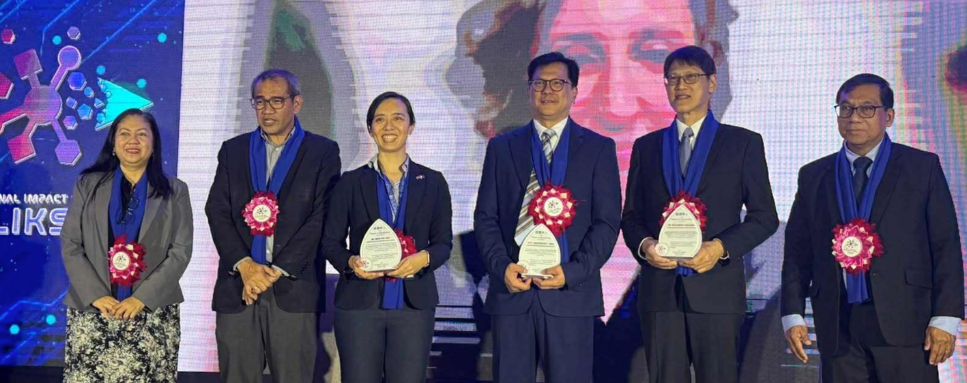
A key highlight of the conference was the signing of the Memorandum of Understanding involving university presidents and research institute directors. Thirty-four (34) IMPACT grantee institutions formalized their partnership. SLU was among the official recipients, with Dr. Espique signing on behalf of the University. This milestone marks a vital step toward advancing the next phase of the project, IMPACT NXT, aimed at building stronger technology transfer offices to create research with meaningful impact for communities.
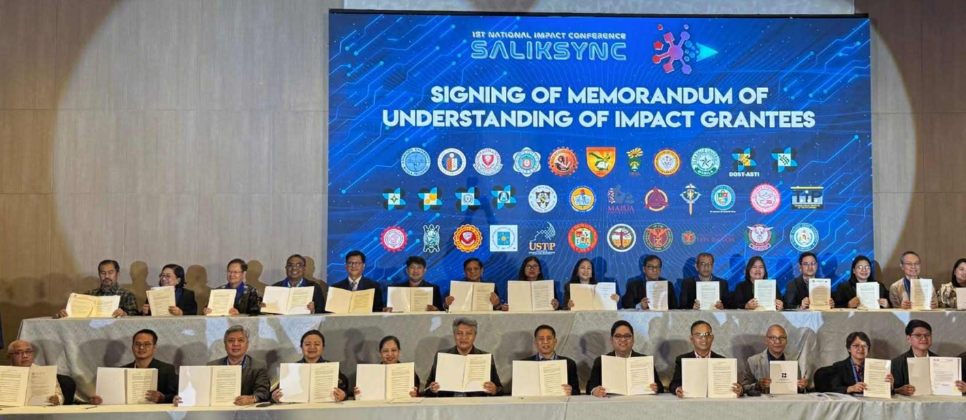
SLU’s achievements in technology transfer were further recognized, as the University ranked seventh among HEIs with Technology Licensing Agreements signed from 2018 to 2024, according to the latest DOST report. This recognition underscores SLU’s consistent engagement in innovation and research commercialization initiatives.

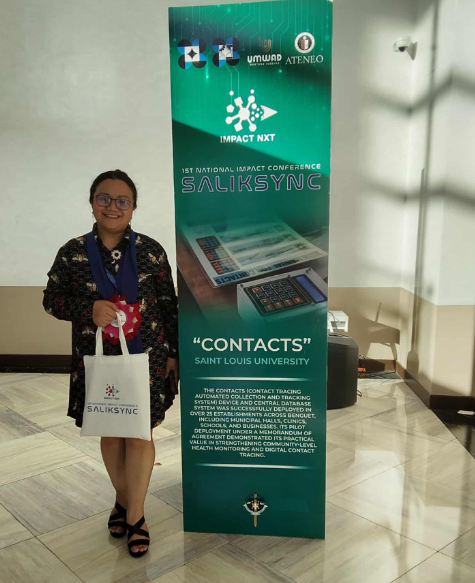
Among the showcased research outputs in the conference was CONTACTS, a project developed in 2021 by a group of students from the School of Engineering and Architecture (SEA). CONTACTS proved particularly valuable during the 2019 COVID-19 pandemic, providing digital health monitoring and contact tracing capabilities when such tools were critical for public health and safety, demonstrating how student-led innovations can have immediate societal benefits.
The First National IMPACT Conference marked a significant milestone in strengthening the country’s innovation ecosystem. It provided a vital platform for collaboration among the academe, government, and industry to advance technology transfer, research commercialization, and innovation-driven partnerships.
SLU’s participation reaffirms its strong commitment to research utilization and innovation. Through the IMPACT NXT Project, SLU continues to ensure that science and research serve society, driving progress, sustainability, and inclusive development.
9th National TBI Summit 2025: The Innovation Archipelago
Leaders, innovators, and changemakers from across the country gathered from 7-8 November 2025 in Bacolod City for the 9th Technology Business Incubator (TBI) Summit. The event brought together university heads, TBI managers, startups, and innovation partners to strengthen the country’s innovation ecosystem.
Themed “The Innovation Archipelago: Connecting Ecosystems, Expanding Horizons”, the summit focused on connecting regions, building partnerships, and promoting collaboration. More than just a conference, it was a celebration of unity, leadership, and the shared goal of creating a future driven by innovation.


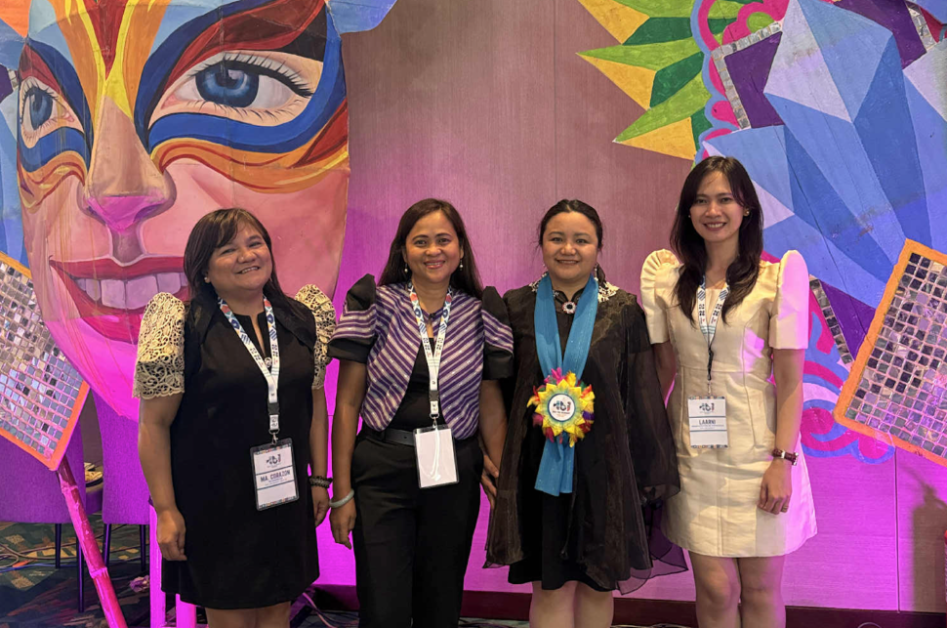
The summit opened with a message from Renato U. Solidum, Jr., PhD, DOST Secretary. He emphasized the important role of startups and incubators in developing a strong and sustainable innovation system across the regions. Dr. Solidum also said that the future of Philippine innovation depends on cooperation among universities, industries, and communities.
In the keynote talk of Enrico C. Paringit, PhD, Executive Director of DOST-PCIEERD, discussed “Inclusivity and Sustainability in Startups: Regional Goals.” He explained how science, technology, and innovation support regional development through programs such as:
- Higher Education Institution Readiness for Innovation and Technopreneurship (HEIRIT) Program, which helps universities and startups turn ideas into businesses, supporting over 1,691 startups;
- Regional Startup Enabler for Ecosystem Development (ReSEED) Program, which builds regional innovation consortia linking incubators, universities, and government offices;
- Startup Grant Fund, which gives direct support to early-stage innovators; and
- Women-Helping-Women: Innovating Social Enterprises (WHWise) Program, which supports women-led enterprises through mentoring, technology use, and funding.
One of the main highlights of the summit was the Renewal of Commitment of HEIRIT TBIs. During the ceremony, 59 university and TBI logos were displayed on screen as agency and university heads confirmed their renewed support for innovation. The activity symbolized years of growth, partnership, and dedication to strengthening the country’s innovation landscape.
SLU was among the 59 universities that renewed their commitment during the summit. SLU was represented by Dr. Espique. This milestone highlights SLU’s ongoing dedication to advancing research, innovation, and technology that create positive community impact and contribute to national development.
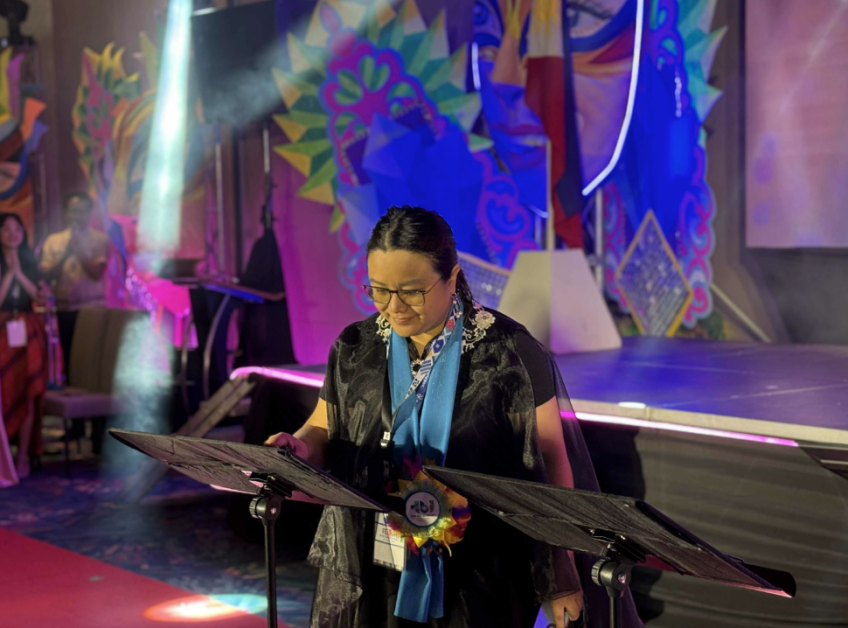

The 9th TBI Summit ended with a strong call for cooperation and shared progress, reminding all participants that the strength of the Philippine innovation ecosystem lies in its unity, inclusivity, and commitment to sustainable growth.
In line with this vision, SLU’s active participation in the summit reflects its firm commitment to promoting teamwork, innovation, and sustainability across regions. By supporting research-based startups and enhancing its technology transfer programs, SLU continues to help build an inclusive and resilient innovation community and remains dedicated to transforming ideas into meaningful solutions that address community needs and contribute to the national goal of using science, technology, and innovation to achieve lasting growth and development.
This participation aligns with the United Nations’ Sustainable Development Goals, particularly, Quality Education (SDG 4), Industry, Innovation and Infrastructure (SDG 9), Sustainable Cities and Communities (SDG 11), Partnerships for the Goals (SDG 17). (Article and Photos from Laarni Natividad, RISE Center)







